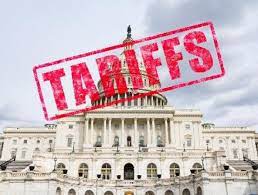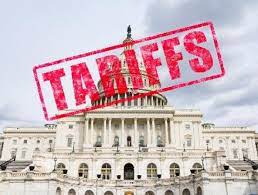
Experts argue that the export restrictions being explored by Washington to impede China's progress in semiconductor manufacturing could come at a high cost, potentially upsetting delicate global chip supply networks and harming US industries.
According to Reuters, the US is considering banning supplies of American chipmaking equipment to Chinese memory chip makers that make complex semiconductors used in everything from cellphones to data centres. more info
The restrictions would hinder chipmakers such as South Korean conglomerates Samsung Electronics and SK Hynix from shipping new technology tools to factories in China, preventing them from modernising plants that serve clients all over the world.
Samsung and SK Hynix, which dominate more than half of the worldwide NAND flash memory chip market, have made significant investments in China in recent decades to develop chips used by customers such as Apple, Amazon, Facebook owner Meta, and Google. The chips are utilised in devices such as electric vehicles that require digital data storage, in addition to PCs and phones.
"Samsung's China production alone accounts for more than 15% of global NAND flash production ... If there's any production disruption, it will make chip prices surge," said Lee Min-hee, analyst at BNK Securities.
The possibility for new upheaval – the limitations have yet to be approved – comes as a global chip supply crisis that has impacted businesses ranging from automobiles to consumer electronics for more than a year begins to ease. Damage has been repaired as a result of supply chain modifications and diminishing consumer demand amid a slowing global economy.
However, the shortfall has not been completely rectified. Any further disruptions could rekindle supply concern, resulting in a price increase, as witnessed earlier this year when China enforced COVID-19 limitations in Xian, where Samsung makes chips.
Months before production begins, chipmaking equipment must be installed and thoroughly tested. Any delays in transporting the equipment to China would provide a significant barrier to chipmakers seeking to develop more advanced chips in China facilities.
"Many U.S. companies, like Apple, use Samsung and SK Hynix memory chips. No matter what strategy (the South Korean firms) end up choosing, it will have global implications," said BNK Securities analyst Lee.
Both Samsung and SK Hynix refused to comment. Apple, Amazon, Meta, and Google did not respond to requests for comment sent after regular business hours in the United States.
Since breaking ground on the site in 2012, Samsung has invested over $26 billion in its memory chip business in Xian, central China, one of the largest foreign chip projects in the country, involving chip manufacture, testing, and packaging.
According to analysts, the tech giant manufactures 128-layer NAND flash products in Xian, chips that store data in devices including as smartphones and personal computers, as well as data centres.
According to TrendForce, the facility accounts for 43 per cent of Samsung's global NAND flash memory production capacity and 15 per cent of total global output capacity.
If authorised, the US crackdown could potentially impede SK Hynix's plans to extend its influence in the NAND market, where it is now placed third after Samsung and Japan's Kioxia Holdings, which was spun off from Toshiba Corp.
SK Hynix completed the first phase of its $9 billion acquisition of Intel's NAND division, including its Dalian, China NAND manufacturing facility, late last year. more info
The US move is one of several recent indicators of escalating tensions between Beijing and Washington over the technology sector.
Last week, Congress passed legislation to subsidise semiconductor production in the United States. It prohibits any company receiving federal subsidies from investing in specific semiconductor technology in China during the subsidy period.
Analysts and industry sources said that rising tensions may force Samsung and SK Hynix to reconsider their China investment strategy.
"Until now, companies tended to invest in countries like China, where costs were cheap," said Kim Yang-jae, analyst at Daol Investment & Securities.
"That's no longer going to be the only consideration. The biggest change these potential limits will bring will be where the next chip factories are built."
They may also face dwindling profits from their multibillion-dollar China operations, which may be forced to produce older-technology, less profitable chips.
Because US officials do not allow advanced equipment required in the process to enter the US, SK Hynix has been unable to upgrade its DRAM memory chip production facilities in Wuxi, China, with the latest extreme ultraviolet lithography (EUV) chipmaking machinery built by Dutch firm ASML.
EUV machines are used to produce more advanced and smaller chips utilised in high-end products such as smartphones.
(Source:www.ndtv.com)
According to Reuters, the US is considering banning supplies of American chipmaking equipment to Chinese memory chip makers that make complex semiconductors used in everything from cellphones to data centres. more info
The restrictions would hinder chipmakers such as South Korean conglomerates Samsung Electronics and SK Hynix from shipping new technology tools to factories in China, preventing them from modernising plants that serve clients all over the world.
Samsung and SK Hynix, which dominate more than half of the worldwide NAND flash memory chip market, have made significant investments in China in recent decades to develop chips used by customers such as Apple, Amazon, Facebook owner Meta, and Google. The chips are utilised in devices such as electric vehicles that require digital data storage, in addition to PCs and phones.
"Samsung's China production alone accounts for more than 15% of global NAND flash production ... If there's any production disruption, it will make chip prices surge," said Lee Min-hee, analyst at BNK Securities.
The possibility for new upheaval – the limitations have yet to be approved – comes as a global chip supply crisis that has impacted businesses ranging from automobiles to consumer electronics for more than a year begins to ease. Damage has been repaired as a result of supply chain modifications and diminishing consumer demand amid a slowing global economy.
However, the shortfall has not been completely rectified. Any further disruptions could rekindle supply concern, resulting in a price increase, as witnessed earlier this year when China enforced COVID-19 limitations in Xian, where Samsung makes chips.
Months before production begins, chipmaking equipment must be installed and thoroughly tested. Any delays in transporting the equipment to China would provide a significant barrier to chipmakers seeking to develop more advanced chips in China facilities.
"Many U.S. companies, like Apple, use Samsung and SK Hynix memory chips. No matter what strategy (the South Korean firms) end up choosing, it will have global implications," said BNK Securities analyst Lee.
Both Samsung and SK Hynix refused to comment. Apple, Amazon, Meta, and Google did not respond to requests for comment sent after regular business hours in the United States.
Since breaking ground on the site in 2012, Samsung has invested over $26 billion in its memory chip business in Xian, central China, one of the largest foreign chip projects in the country, involving chip manufacture, testing, and packaging.
According to analysts, the tech giant manufactures 128-layer NAND flash products in Xian, chips that store data in devices including as smartphones and personal computers, as well as data centres.
According to TrendForce, the facility accounts for 43 per cent of Samsung's global NAND flash memory production capacity and 15 per cent of total global output capacity.
If authorised, the US crackdown could potentially impede SK Hynix's plans to extend its influence in the NAND market, where it is now placed third after Samsung and Japan's Kioxia Holdings, which was spun off from Toshiba Corp.
SK Hynix completed the first phase of its $9 billion acquisition of Intel's NAND division, including its Dalian, China NAND manufacturing facility, late last year. more info
The US move is one of several recent indicators of escalating tensions between Beijing and Washington over the technology sector.
Last week, Congress passed legislation to subsidise semiconductor production in the United States. It prohibits any company receiving federal subsidies from investing in specific semiconductor technology in China during the subsidy period.
Analysts and industry sources said that rising tensions may force Samsung and SK Hynix to reconsider their China investment strategy.
"Until now, companies tended to invest in countries like China, where costs were cheap," said Kim Yang-jae, analyst at Daol Investment & Securities.
"That's no longer going to be the only consideration. The biggest change these potential limits will bring will be where the next chip factories are built."
They may also face dwindling profits from their multibillion-dollar China operations, which may be forced to produce older-technology, less profitable chips.
Because US officials do not allow advanced equipment required in the process to enter the US, SK Hynix has been unable to upgrade its DRAM memory chip production facilities in Wuxi, China, with the latest extreme ultraviolet lithography (EUV) chipmaking machinery built by Dutch firm ASML.
EUV machines are used to produce more advanced and smaller chips utilised in high-end products such as smartphones.
(Source:www.ndtv.com)





